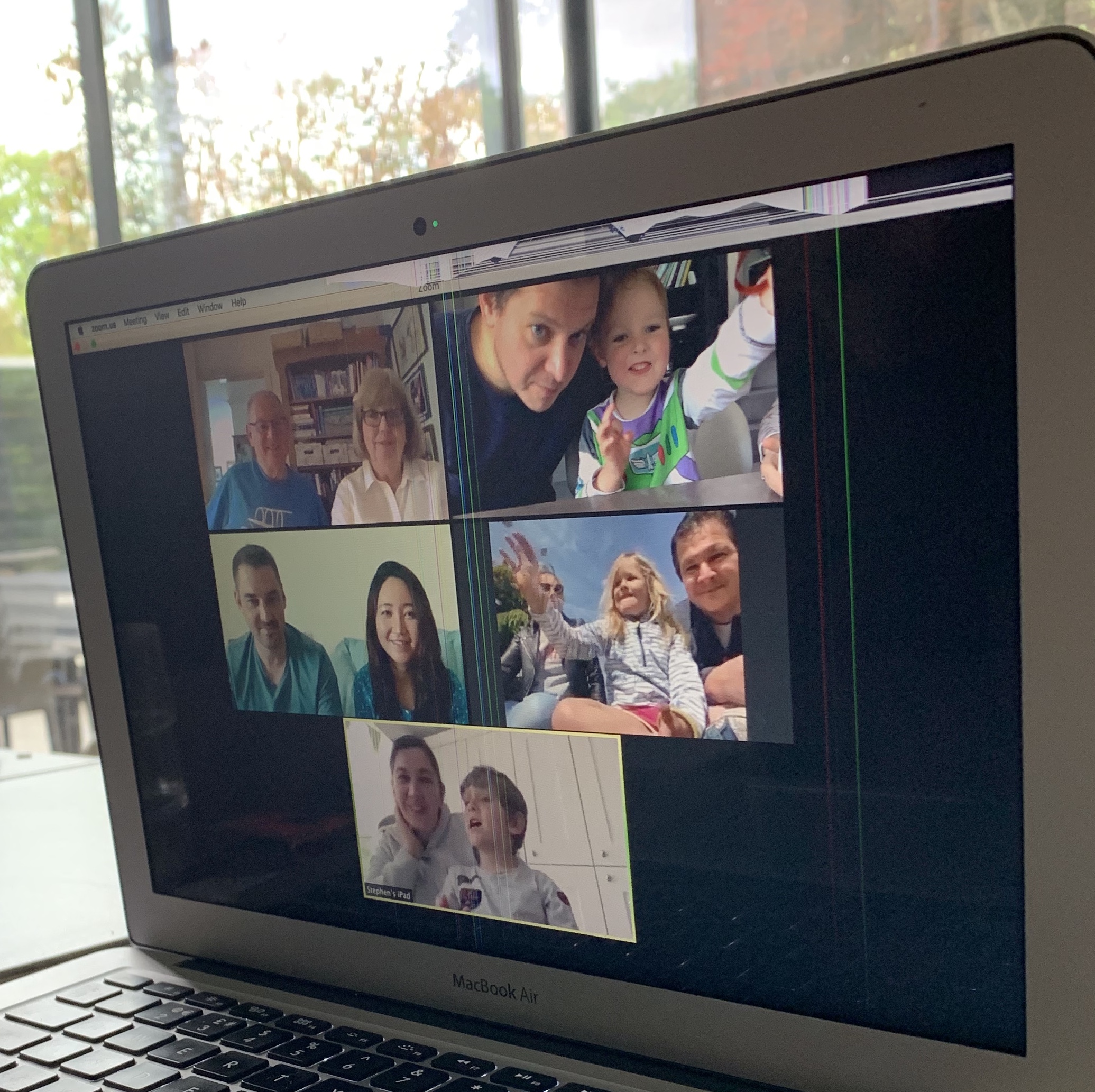
“Your screen time is up 46% vs last week,” my phone dutifully informs me. WHAT? How can that possibly be right? But of course, the machine is in fact, annoyingly and entirely accurate.
We are, in spite of what we are all enduring through this Covid-19 crisis, still human. And humans desperately need connection.
Harvard’s longest study on human behaviour, which started in 1938 during the Great Depression and tracked the lives of 724 men, has shown that the people that live the longest, healthiest lives are not those that exercise the most. Not those with the lowest levels of stress in their lives. Not those who religiously swerve the Doritos. Those who thrive in old age are the ones that lean into relationships with family, with friends, with community.
We are social beings. It is quality human connection that keeps us healthy and happy. People you can count on. And loneliness actually kills.
To be kept apart like this is damaging to our health.
And so, we reach for our phones. And we feel so fortunate to have technology. “Shall we Zoom later?” “Fancy a House Party tonight?” Family quiz nights, virtual gin tastings and back-to-back meetings with the novel opportunity to nosey at your boss’ questionable taste in wall art. And thank goodness for WhatsApp. Seriously, if I were to drop my phone out of my back pocket and down the loo right now (which I have done on at least three occasions), I’m not sure I could go on. And not a grain of rice in the house to save it. Purgatory. Cut off from the world. Truly terrifying.
And yet, we all know that too much time on our screens is bad for us. What a tricksy dilemma.
On average we check our phones 58 times a day and spend three hours and 15 minutes on it every day. The top 20% of us spend upwards of 4.5 hours. These figures will be soaring right now with social platforms enjoying a huge upturn in traffic and according to Virgin Media, internet usage has doubled.
But did you know that the cortisol that surges through our bodies every time we pick up our phones due to a notification creates an energy surge similar to an animal being hunted?
We may think we’re checking to reduce stress, to connect to the world but our body doesn’t know that. It thinks it’s triggering an injection of cortisol because we’re in danger. The effect of too much stress hormones coursing through our bodies day after day can lead to exhaustion and poor sleep (loopy lockdown dreams anyone?). Long term it could even lead to weight gain, increased blood pressure, diabetes and hampered immune system.
Incessant checking to see if we have received another email, if there is a new (no doubt harrowing) news article, if our screen time has blooming well increased, has become habitual for many.
It is in “knowledge jobs” where what makes us human – our ability to problem solve, work in teams, collaborate, be creative – is what make us unique and irreplaceable by the robots. Cal Newport defines it as “deep work” – the ability to focus without distraction on a cognitively demanding task. And it is more valuable than ever. We must find a way to focus, concentrate and get better at things in this new normal, without being constantly bombarded by our devices.
So what is the right balance during these unprecedented times?
Can employee wellbeing be better protected?
How much screen time is optimal?
Of course, nobody really knows. We certainly don’t proclaim to. But we do know that constantly feeding the anxiety we already feel cannot be a good thing for our wellbeing.
Here are three Welfy tips to striking a healthier balance.
1. Say goodbye to notifications
Take back control by turning notifications OFF. It might feel scary if you’ve become a little addicted to that familiar buzz, or that needy little red circle but you won’t actually miss anything. When you are taking a break from work or are in a headspace where you’re ready to hear from the world or connect with friends, you can simply choose to open the App and see what’s waiting for you. To do this on an iPhone for example, simply go to Settings>Notifications and switch off as many as you dare. Sit back, relax, watch your productivity rocket and your anxiety fall.
2. DO talk to strangers
We know. You were taught by your parents not to. But desperate times call for desperate measures. Striking up conversation with randoms whilst you are on your daily stroll may not come naturally to all of us but the science proves that engaging with others in your community, at a safe distance of course, could be just what the doctor ordered. And faces really are wonderful in 3D.
3. No news Friday
I not only limit my news intake but manage to avoid ALL news on Fridays. It’s not easy. I often go running from rooms singing loudly with my hands over my ears as my husband innocently tunes into Five Live. But it’s worth it. I feel like a brand-new human by the end of the day. Studies have proven that reading, and particularly, watching too much traumatic news can increase the cycle of anxiety, fear and depression. This can weaken our immune systems and make us more vulnerable to Covid-19. If you think your news habit might be creeping out of control, just start with an afternoon of no news and see how it makes you feel, how much more focused you can be and if you can drop off to sleep a little easier.
Connection is the energy that exists between people when they feel seen, heard and valued; when they can give and receive without judgement; and when they derive sustenance and strength from the relationship. Brené Brown


